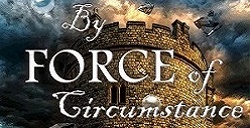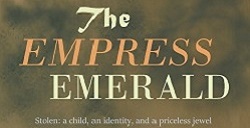

From A Turning Wind
Chapter 1
Goa, India, September 1639
It was a ramshackle affair for such valuable goods. A makeshift marketplace created out of crimson and brightly striped awnings. Lengths of scarlet, orange, turquoise, purple and blue formed curtains between trees; sheltering the splendid commodities from the late summer sun. Vendors were still laying out their wares when Ludo arrived: gems and trinkets in copper and gold, ivory combs and bangles, shimmering sari silk and embroidered fringed shawls, all transported from one coast of India to the other on heads and shoulders. The costly cargo had passed through the famous alluvial diamond valleys of Golconda, the human caravan collecting ever more precious gems along the way – a cargo now watched over by guards with arm muscles that rippled ‘beware’ and vicious knives tucked in wide belts.
Curious, colourful, magnificent . . . everything Ludo had hoped for. He was delighted. Yet, wandering among the displays, he began to wonder why he had come – what, apart from uncut diamonds, he was actually seeking.
As he finished his first circuit, a white bullock ambled in pulling a cart laden with clay flagons. Happily over-paying an urchin for a drink of water then returning the cup, Ludo strolled back among the folding tables, trestles and floor mats, this time stopping to examine a miniature chest of drawers decorated with inlaid mother-of-pearl for women’s trinkets. It was pretty, but no, not special enough to add to his ship’s cargo. Moving on, he encountered an awkward Englishman dabbing at his forehead with a sodden handkerchief. The pink-faced sahib was struggling to keep up with an Indian agent’s heavily accented sales patter without losing his cherished dignity.
“Let me tell you how they are found,” the Goan agent was saying as he ran a hand seductively through a wide lacquered bowl of uncut diamonds. “When it rains, water rushes down the mountains, taking these precious stones with it and leaving them trapped at the bottom of gorges and in caverns. When the dry season comes and there is not one drop of water to be had, when the heat is enough to kill an Englishman as he walks from his door, brave men risk their lives to collect the stones. But they must go where wild serpents thrive. Venomous serpents and vast – serpents that crush and swallow men whole . . .”
Ludo shuddered along with the Englishman: snakes were another of the reasons he had made no attempt to travel inland during his stay in Goa.
“. . . but these diamonds are precious not only for the means by which they are obtained, not only for their special rarity, but for their quality. Look, sahib, see how fine they are, how they bring light into our lives. Each one is perfect, flawless . . .”
The Englishman put a forefinger in the bowl and peered at a stone the size of a sparrow’s egg, then at another the shape and form of a woman’s fingernail. The Goan agent took his hand and placed an uncut stone in the sweating palm then exchanged it for a cushion-cut diamond ring magicked from among his robes saying quietly, “This is not for everyone to know, sahib, but I should tell you, there may not be many more of these diamonds. Each year there are fewer. It is said the serpents now eat them to preserve their heritage.”
Ludo swallowed a grin and gestured with a hand to attract the agent’s attention. Half-convinced, half-enthralled, and knowingly walking into an enticement worthy of his own invention, Ludo stepped forward and cocked his head to one side enquiringly. The agent retrieved the ring from the Englishman and put it in Ludo’s open palm then whisked a heart-shaped ruby from thin air and put it next to the ring.
Ludo’s hand was broad but there was barely room for the two wonderful gemstones. The agent picked the ring from Ludo’s hand, leaving only the ruby to burn through his palm in the warm light of the coloured awnings.
“A gem worthy of a queen, sahib,” the agent murmured.
“Worthy of a queen . . . it is indeed,” Ludo murmured. This was what he wanted: this ruby. “But it is too much for a humble merchant such as me.”
“No, sahib, this ruby is for you. This is what you seek.”
Copyright © A.M.Arredondo. All Rights Reserved.









